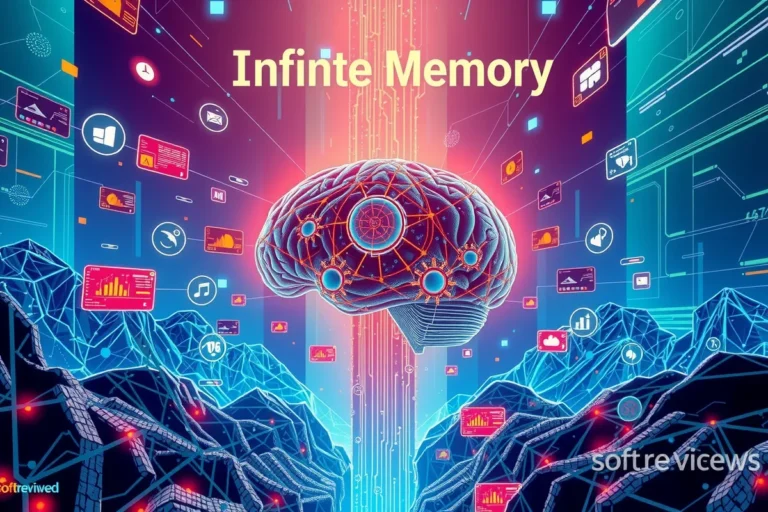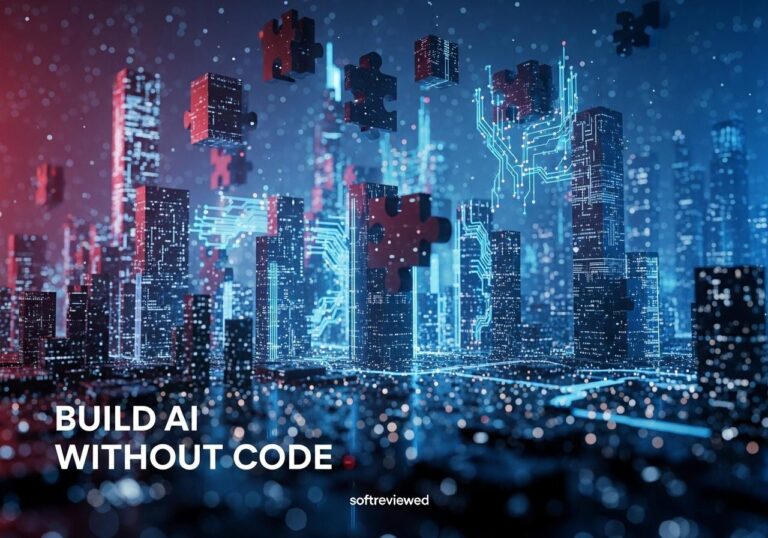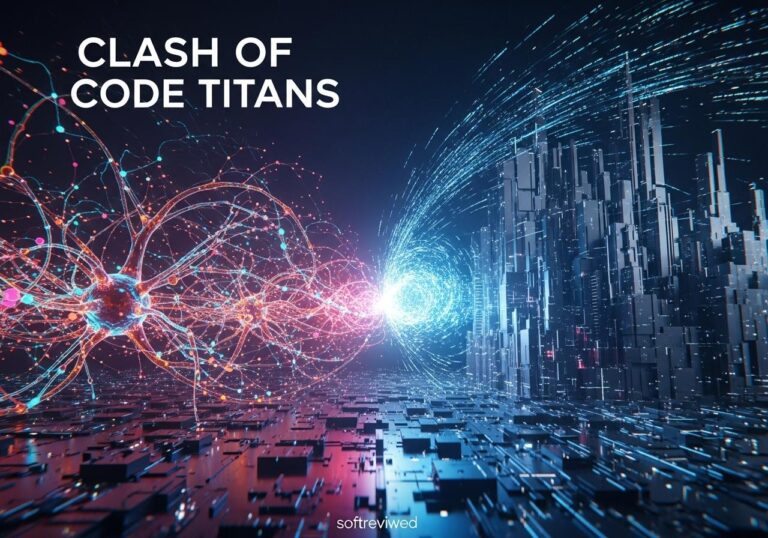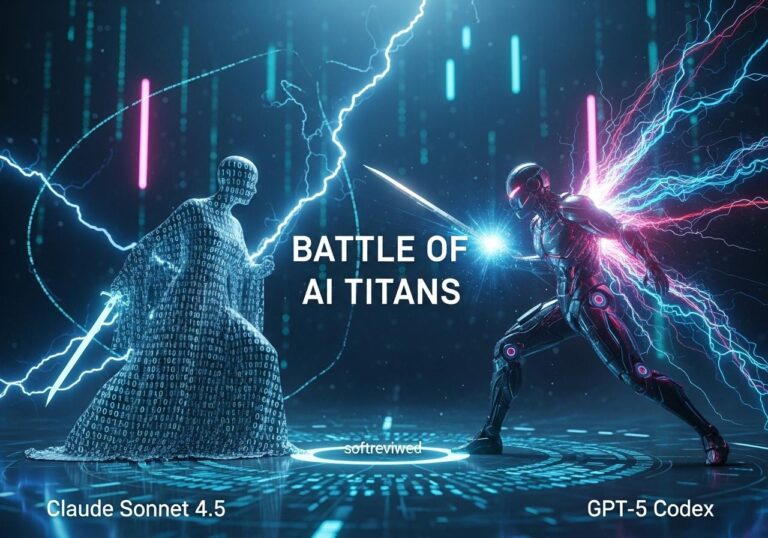The Future of AI Memory: 2025 and Beyond
How AI’s enhanced memory capabilities will transform human-machine interaction
🧠 AI Memory Mastery by 2025
Microsoft’s AI CEO predicts advanced long-term memory capabilities, enabling AI to maintain detailed records of conversations and personal history.
💡 Enhanced User Interaction
Integration of memory with voice interaction creates a “second brain,” boosting creativity and productivity through continuous, evolving discussions.
🔄 Contextual Understanding
Infinite memory capacity allows AI to maintain context of all previous interactions, fostering genuine long-term relationships and idea development.
🤖 AI Co-Pilot Companions
Advanced memory enables AI assistants to become true companions, recalling past conversations and personal data for deeper integration.
🔒 Privacy & Security
Critical challenges in data security and privacy protection must be addressed as AI systems become more integrated into daily life.
🗣️ Natural Conversation Flow
Memory-enabled AI facilitates more natural exchanges, creating a seamless conversational experience with personal knowledge tracking.
In a groundbreaking prediction that could reshape the landscape of artificial intelligence, Mustafa Suleyman, CEO of Microsoft AI, has announced that AI systems may achieve infinite memory capabilities by 2025. This bold forecast, made during Suleyman's recent visit to India, signals a potential paradigm shift in how we interact with and utilize AI technologies.
Who is Mustafa Suleyman?
Mustafa Suleyman is a prominent figure in the AI industry, bringing significant credibility to this prediction:
- Current CEO of Microsoft AI
- Co-founder of DeepMind, later acquired by Google
- Known for his contributions to major AI breakthroughs, including AlphaGo
Understanding Infinite Memory in AI
When Suleyman speaks of "infinite memory," he's referring to a transformative capability in AI systems:
- Persistent Memory: AI that doesn't forget, maintaining an ongoing, evolving dialogue with users
- Contextual Understanding: The ability to build on past interactions, creating a more personalized and intuitive user experience
- Seamless Interaction: Blurring the lines between human-computer interactions, similar to the shift we experienced with mobile touch screens
Current Progress and Prototypes

Suleyman revealed that Microsoft is already working on prototypes with near-infinite memory capabilities. "We have prototypes that we've been working on that have near infinite memory. And so it just doesn't forget, which is truly transformative," he stated in an exclusive interaction with Times of India.
Implications of Infinite Memory AI
The advent of AI with infinite memory could have far-reaching consequences:
- Personalized Learning: AI could become an "amazing teacher," offering personalized curricula tailored to individual interests and learning styles
- Healthcare Advancements: The potential for AI to serve as an "amazing doctor," leveraging vast medical knowledge and patient history
- Enhanced Decision Making: AI systems could provide more informed and contextually relevant advice, acting as a "consigliere" or wise advisor
- Improved User Interaction: With the addition of voice capabilities and personality, AI could become a more natural and engaging conversational companion
Challenges and Considerations
While the prospect of infinite memory AI is exciting, several challenges need to be addressed:
- Computational Power: Building systems with long-term memory for billions of users requires massive computational resources
- Cost Reduction: Making sophisticated AI models affordable and accessible to a broader audience
- Language Diversity: Adapting AI to work with multiple languages, especially in diverse regions like India
- Ethical Concerns: Ensuring responsible use of AI with such extensive memory capabilities
Microsoft's Role in AI Development
Microsoft is heavily invested in advancing AI technology:
- Thousands of engineers in Bengaluru and Hyderabad are contributing to cutting-edge AI research and development
- These teams are instrumental in developing Microsoft's Copilot initiative and improving Bing's search quality
- Indian engineers provide unique insights due to the country's diversity, helping to create more inclusive and globally applicable AI solutions
The Future of AI and Human Interaction
Suleyman envisions a future where AI becomes an integral part of our daily lives:
- AI as a copilot, empowering people to be their best selves
- Seamless voice interactions, breaking down traditional barriers between humans and computers
- AI systems that understand context, emotions, and nuanced communication
Preparing for the AI-Driven Future
For those looking to thrive in this AI-driven future, Suleyman emphasizes the importance of multidisciplinary thinking:
- The ability to operate at the intersection of technology, creativity, and social needs
- Embracing a range of skills, from coding to creative design and content creation
How Might the Advancement of AI, as Predicted by Microsoft’s CEO, Influence the Value of AI Art like the Portrait of Alan Turing?
The advancement of AI, as predicted by Microsoft’s CEO, could significantly enhance the market for AI-generated art, exemplified by the portrait of Alan Turing. As technology evolves, the uniqueness and creativity of such works may elevate their status, leading to greater ai robot portrait auction success and attracting collectors worldwide.
Conclusion
Mustafa Suleyman's prediction of AI achieving infinite memory by 2025 represents a potential quantum leap in artificial intelligence capabilities. While challenges remain, the ongoing work at Microsoft and other tech giants suggests that we are on the cusp of a new era in AI technology. As we approach this milestone, it's crucial to consider both the immense possibilities and the ethical implications of such powerful AI systems.
The coming years will likely see rapid advancements in AI memory, personalization, and human-AI interaction. As these technologies evolve, they promise to reshape industries, enhance personal productivity, and open new frontiers in how we learn, work, and interact with the world around us.
AI Memory & Capability Development Timeline (2023-2025)
This timeline visualizes the expected development of AI capabilities, showing the progression towards permanent memory and advanced features through 2025.







